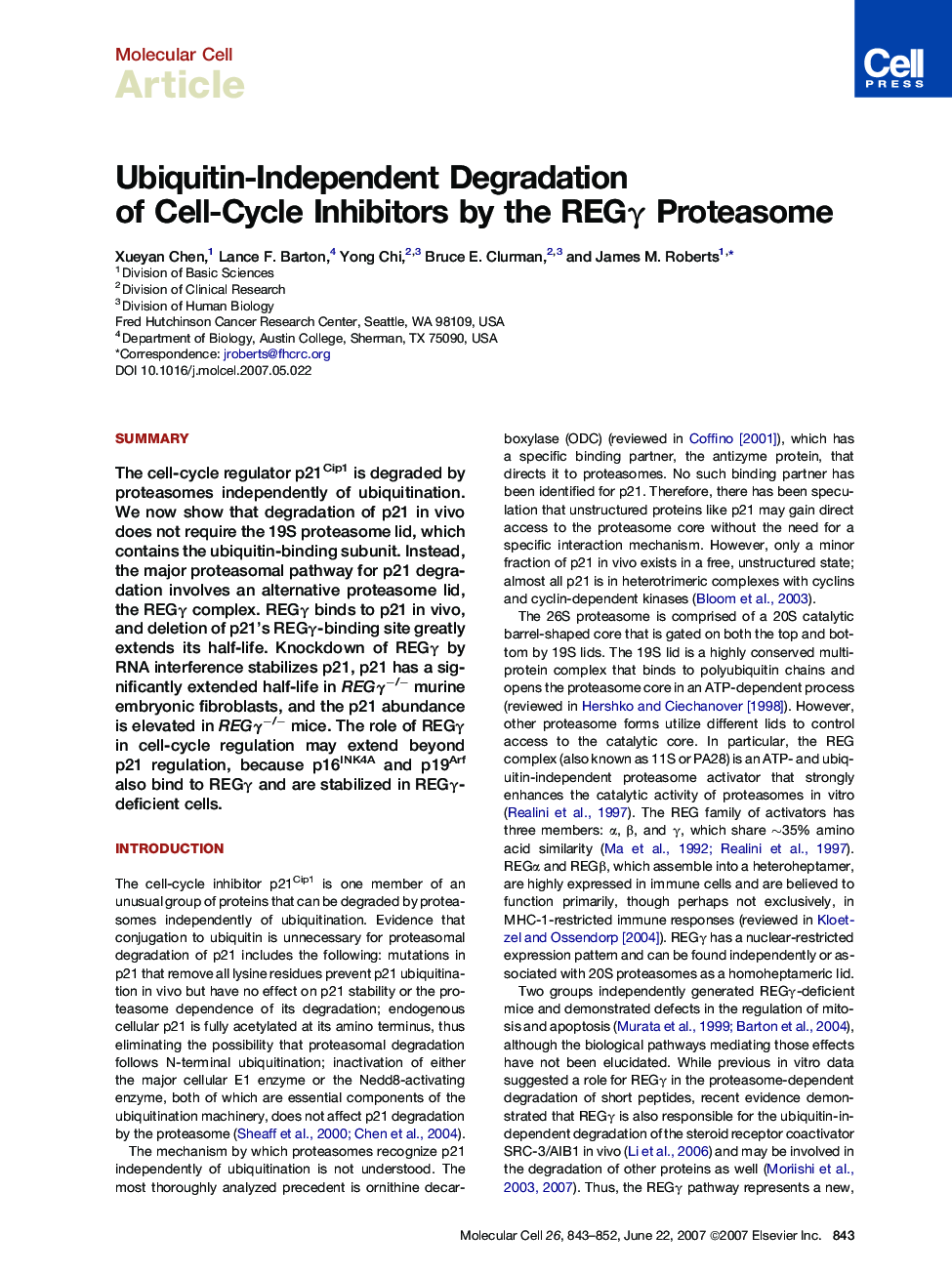| Article ID | Journal | Published Year | Pages | File Type |
|---|---|---|---|---|
| 1997721 | Molecular Cell | 2007 | 10 Pages |
SummaryThe cell-cycle regulator p21Cip1 is degraded by proteasomes independently of ubiquitination. We now show that degradation of p21 in vivo does not require the 19S proteasome lid, which contains the ubiquitin-binding subunit. Instead, the major proteasomal pathway for p21 degradation involves an alternative proteasome lid, the REGγ complex. REGγ binds to p21 in vivo, and deletion of p21's REGγ-binding site greatly extends its half-life. Knockdown of REGγ by RNA interference stabilizes p21, p21 has a significantly extended half-life in REGγ−/− murine embryonic fibroblasts, and the p21 abundance is elevated in REGγ−/− mice. The role of REGγ in cell-cycle regulation may extend beyond p21 regulation, because p16INK4A and p19Arf also bind to REGγ and are stabilized in REGγ-deficient cells.
